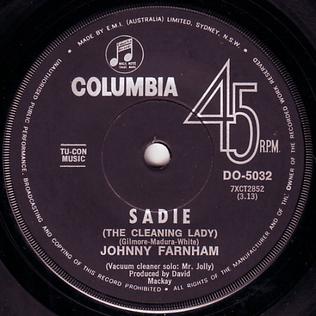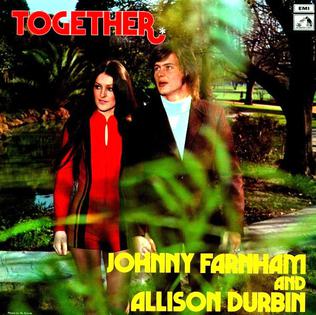Related Research Articles

James Allen Hightower is an American syndicated columnist, progressive political activist, and author. From 1983 to 1991 he served as the elected commissioner of the Texas Department of Agriculture. He publishes a monthly newsletter that is notable for its in-depth investigative reporting, The Hightower Lowdown.
Crawdaddy was an American rock music magazine launched in 1966. It was created by Paul Williams, a Swarthmore College student at the time, in response to the increasing sophistication and cultural influence of popular music. The magazine was named after the Crawdaddy Club in London and published during its early years as Crawdaddy!.

Sunbury Pop Festival or Sunbury Rock Festival was an annual Australian rock music festival held on a 620-acre (2.5 km2) private farm between Sunbury and Diggers Rest, Victoria, which was staged on the Australia Day long weekend from 1972 to 1975. It attracted up to 45,000 patrons and was promoted by Odessa Promotions, which was formed by a group of television professionals, including John Fowler, from GTV 9 Melbourne.
Go-Set was the first Australian pop music newspaper, published weekly from 2 February 1966 to 24 August 1974, and was founded in Melbourne by Phillip Frazer, Peter Raphael and Tony Schauble. Widely described as a pop music "bible",
Ronald Leslie BurnsAM is an Australian retired rock singer-songwriter and musician.
Edward Charles Nimmervoll was an Australian music journalist, author and historian. He worked on rock and pop magazines Go-Set (1966–1974) and Juke Magazine (1975–92) both as a journalist and as an editor. From 2000, Nimmervoll was editor of HowlSpace, a website detailing Australian rock/pop music history, providing artist profiles, news and video interviews. He was an author of books on the same subject and co-authored books with musicians including Brian Cadd and Renée Geyer.

"Sadie (The Cleaning Lady)" was Australian pop singer Johnny Farnham's first solo single. The novelty song was released in November 1967 and was No. 1 on the Go-Set National Singles Charts for five weeks in early 1968 (six weeks on the Australian charts in 1968 based on the Kent Music Report). It was the largest-selling single in Australia by an Australian artist in the 1960s. "Sadie" sold approximately 183,000 copies in Australia and was the highest-selling Australian single until "Up There Cazaly" was released in 1979. It was also released in New Zealand, Denmark and Germany. The B-side, "In My Room", was written by Farnham. The A-side's label includes the acknowledgement "Vacuum cleaner solo: Mr. Jolly".
Lynne Randell was an English Australian pop singer. For three years in the mid-1960s, she was Australia's most popular female performer and had hits with "Heart" and "Goin' Out of My Head" in 1966, and "Ciao Baby" in 1967. In 1967, Randell toured the United States with The Monkees and performed on-stage with support act Jimi Hendrix. She wrote for teen magazine, Go-Set, and television programme guide, TV Week. While on the US tour, Randell became addicted to methamphetamine, an addiction which she battled for most of her life.
Rolling Stone Australia is the Australian edition of the United States' Rolling Stone magazine devoted to music, politics, and popular culture, published monthly. The Australian version of Rolling Stone was initially published in 1970 as a supplement in Revolution magazine published by Monash University student Phillip Frazer. It was launched as a fully fledged magazine in 1972 by Frazer and was the longest-surviving international edition of Rolling Stone until its last issue appeared in January 2018.
The Groop were an Australian folk, R&B and rock band formed in 1964 in Melbourne, Victoria and had their greatest chart success with their second line-up of Max Ross on bass, Richard Wright on drums and vocals, Don Mudie on lead guitar, Brian Cadd on keyboards and vocals, and Ronnie Charles on vocals. The Wesley Trio formed early in 1964 with Ross, Wright and Peter McKeddie on vocals; they were renamed The Groop at the end of the year.

Sadie is the debut studio album by Australian pop singer John Farnham it was released by EMI Records in April 1968. The lead single, "Sadie " had been released in November 1967, it was No. 1 on the Go-Set National Singles Charts for five weeks, and was the largest selling single in Australia by an Australian artist in the 1960s. The single, "Sadie " sold approximately 180,000 copies in Australia, and was also released in New Zealand, Denmark and Germany. The second follow up album single was Jeff Barry/Ellie Greenwichs "Friday Kind of Monday" included on the album and was released in March as a double-A side with a cover of Flanagan and Allens, "Underneath the Arches" as Farnham's second single, which peaked at No. 6.

Christmas Is... Johnny Farnham is a studio album of Christmas songs recorded by Australian pop singer John Farnham and released on EMI Records in December 1970. The single, "Christmas Happy", was also released in December. It would be Farnham's only Christmas album until some 46 years later, when in 2016 he would release Friends for Christmas, a duet seasonal album with Olivia Newton-John.
The Masters Apprentices are an Australian rock band fronted by Jim Keays on lead vocals, which originally formed as The Mustangs in 1964 in Adelaide, South Australia, relocated to Melbourne, Victoria, in February 1967 and attempted to break into the United Kingdom market from 1970 before disbanding in 1972. Their popular Australian singles are "Undecided", "Living in a Child's Dream", "5:10 Man", "Think About Tomorrow Today", "Turn Up Your Radio" and "Because I Love You". The band launched the career of bass guitarist Glenn Wheatley, who later became a music industry entrepreneur and an artist talent manager for both Little River Band and John Farnham.

Ian Alexander "Molly" Meldrum AM is an Australian music critic, journalist, record producer and musical entrepreneur. He was the talent coordinator, on-air interviewer, and music news presenter on the former popular music program Countdown (1974–87) and is widely recognised for his trademark Stetson hat, which he has regularly worn in public since the 1980s.

Together is a studio album of duets by Australian pop singers John Farnham and Allison Durbin, which was released on HMV for EMI Records in September 1971. It peaked at No. 20 on the Australian Go-Set's Albums Chart.
Rock Australia Magazine or RAM was a fortnightly national Australian music newspaper, which was published from 1975 to 1989. It was designed for people with a serious interest in rock and pop, and was considered the journal of record for the Australian music scene, along the way producing some of the country’s best writers on music and popular culture.
The Digger was an alternative magazine published in Australia between August 1972 and December 1975. It was established by Phillip Frazer, Bruce Hanford, and Jon Hawkes. Notable contributors included Ron Cobb, Ian McCausland, Bob Daly, Patrick Cook, Beatrice Faust, Ponch Hawkes, Helen Garner, Michael Leunig, Anne Summers, Neil McLean, and Phil Pinder. The headquarters was in Carlton, Victoria.
The most influential and popular music-related Australian publication of the 1960s was the weekly magazine, Go-Set, which was published from 1966 to 1974. It published the first Australian national singles chart from October 1966 and the first national albums chart from May 1970. The magazine also presented a popularity poll of readers, which led to the King of Pop Awards. Its local competitors during that decade were Everybody's (1961–1968), Oz (1963–1966), Albert Sebastian (1966–1968), Gas (1968–1971) and Revolution (1969–1971).
Music magazines have been published in Australia since the 1950s. They peaked in popularity during the 1970s and '80s, but currently, there are still several national titles, including local editions of Rolling Stone and the classical music-focused Limelight, among others.
Ian McCausland was an Australian artist best known for his music posters.
References
- 1 2 3 4 5 6 Kent, David Martin (September 2002). The place of Go-Set in rock and pop music culture in Australia, 1966 to 1974 (PDF) (MA). Canberra, ACT: University of Canberra. Archived from the original (PDF) on 4 September 2015. NOTE: This PDF is 282 pages.
- ↑ Jenkins, Jeff; Ian Meldrum (2007). "Go-Set - The pioneering pop paper". Molly Meldrum presents 50 years of rock in Australia. Melbourne: Wilkinson Publishing. pp. 22–31. ISBN 978-1-921332-11-1 . Retrieved 27 March 2009.
- 1 2 Kent, David M. (2000). "Go-Set: Life and Death of an Australian Pop Magazine" . Retrieved 28 May 2008.
- ↑ Turnbull, Jeffrey. "Go-Set Australian Chart Website: What was Go-Set" . Retrieved 27 March 2009.
- 1 2 Cock, Peter (1979). Alternative Australia: Communities of the Future?. Quartet Books. ISBN 9780908128099 . Retrieved 26 March 2009. NOTE: On-line version is a 'snippet view'
- ↑ Jackson, Sally (1 May 2008). "Rolling Stone set to gather new boss". The Australian . Retrieved 23 March 2009.[ dead link ]
- ↑ "The Hightower Lowdown". The Alternative Press Center. Retrieved 18 May 2009.